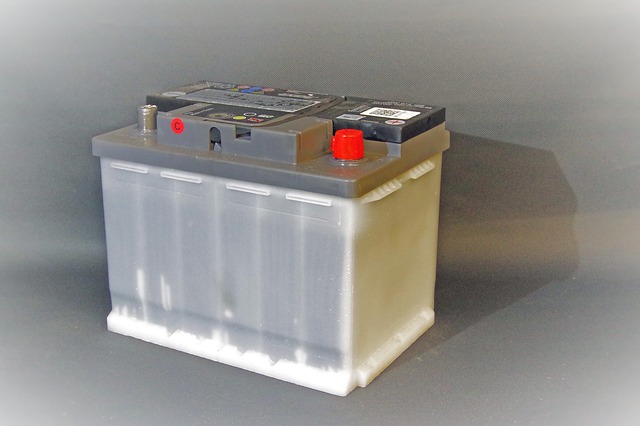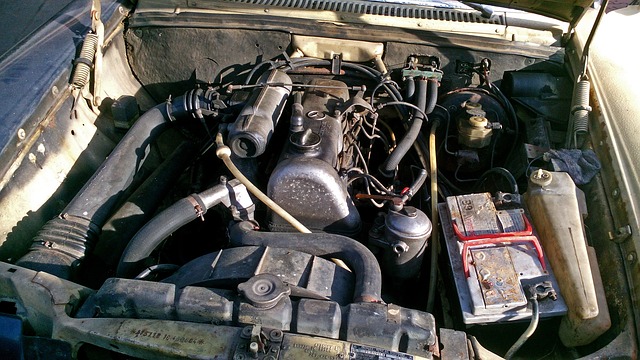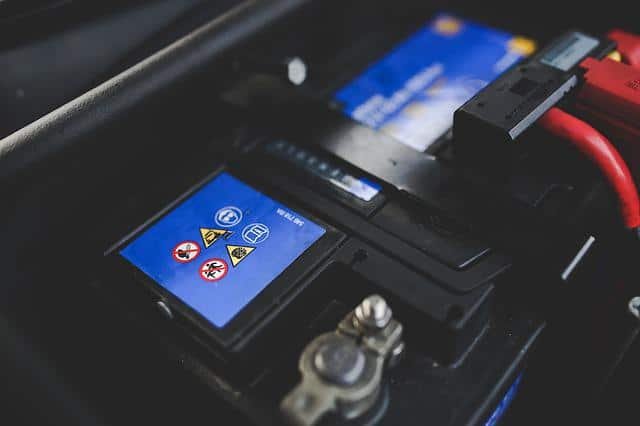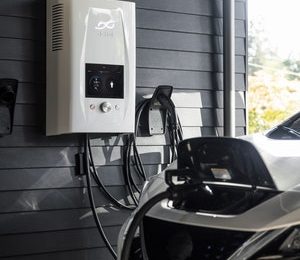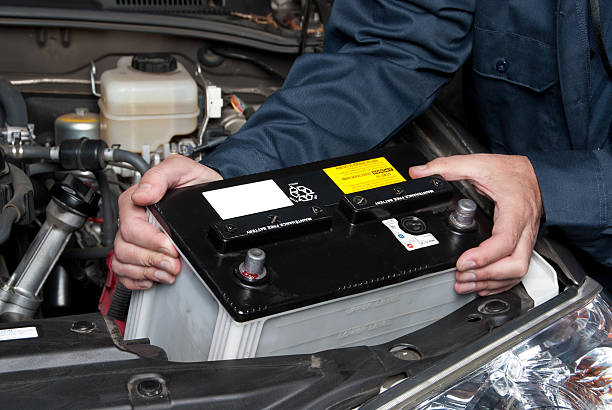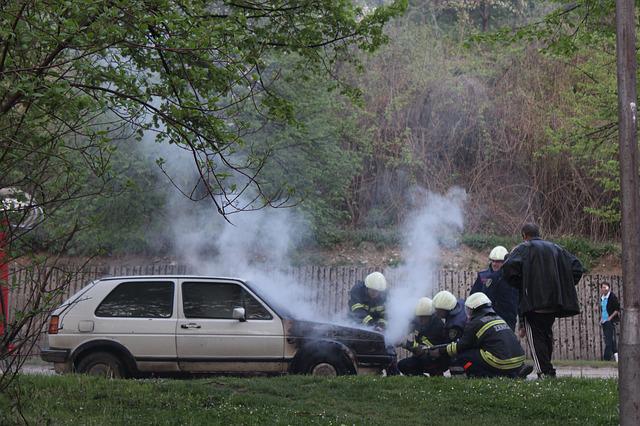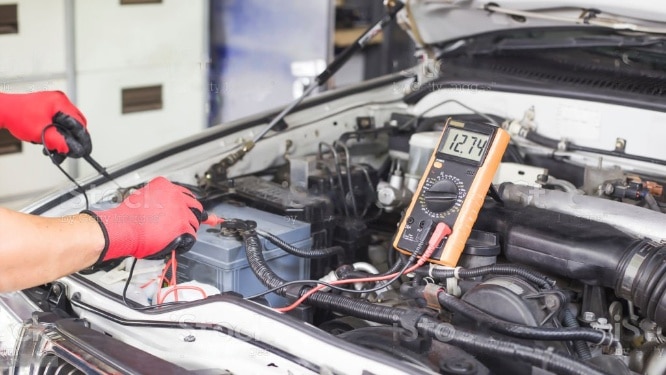It would be best to find out what causes your car’s battery to die because this is one aspect of the car that you can’t neglect as a car owner. Car batteries constantly change, so you can’t keep using the same car battery after it has exhausted its expected cycle/age.
What causes a car battery to die?
The most common reasons a car battery dies are user error, electrical system malfunction, or poor battery performance. Corroded or poor battery connections often cause a battery that continues to give you trouble, the charging system unable to continue providing power while driving, corroded or lose connections, or lights left on in the vehicle that drains power.
A battery can also die if it is not charged correctly if you leave your car for an extended period and do not drive often enough. A dead battery can also be caused by leaving lights on or not charging the battery for an extended period.
If you have recently purchased a car and your battery has died, it may be time to check the alternator. The alternator is what charges your battery and allows you to run electrical devices in your car, so if it has gone wrong, a new one will need to be installed.
The alternator can also die if it is not maintained correctly. You are maintaining your car, including the battery and the alternator, by regularly checking them at your local auto shop. If you do not maintain your car, it will cause problems and may even lead to more severe issues in the future.
If you are having trouble with your battery dying, check your alternator. If it is not charging the battery properly, you will need to replace it with a new one.
What are the signs that your car’s battery is dying?
A few signs can indicate that your car’s battery is dying are:
- One sign is the smell of sulfur. This smell is produced when the battery fails and hydrogen sulfide gas escapes.
- Another sign is corrosion on the battery terminals. If you see this, acid has leaked from the battery and needs to be replaced immediately.
- Wet areas around the battery and slow cranking are signs that your battery is on its way out.
- Other signs include difficulty using electrical components, igniting the engine; dull headlamps, automated security systems in your car; difficulty using the windows, wipers, and all other electrical controls.
What are the most common causes of car battery death?
The following are the most common reasons why a car battery dies.
Many factors can contribute to a car battery’s death. Depending on the battery type, the car’s age and condition, and how you use it, different causes will be more prevalent. However, high and low temperatures are the biggest culprits for killing batteries. Heat can cause the formation of sulfate crystals in the battery, which reaches within the unit and wreaks havoc on the system. Heat can bend the battery out of shape if left for a very long time, while cold can slash the battery’s power capacity. So, it is vital to be aware of these dangers and take the necessary precautions to keep your car running smoothly.
7 ways to prevent your car’s battery from dying
Some ways to prevent your car battery from dying are to use a trickle charger, avoid being in the car during the winter months, and make sure that you run your engine for about ten minutes every day. Some other additional essential tips to take note of are:
- If you keep your car in the garage, checking the battery every month is essential. A charged battery will have a voltage of 12.6 volts or more if it is fully charged; a dead battery will have a voltage of 12.2 volts or less. If you doubt, bring your car to a professional mechanic and have the battery tested.
- Cover the battery with a waterproof tarp if your car is outside to protect it from rain and snow. You can also buy a solar-powered battery charger, which works on the same principle.
- If your car sits idle for long periods, disconnect the negative terminal from the battery. When you’re ready to drive again, reconnect the negative terminal and start your engine. This will prevent the battery from draining and keep it healthy.
- Car batteries lose their charge when they are not in use. You can prevent this by using a trickle charger, an easy-to-use device that plugs into your car’s cigarette lighter and keeps the battery charged.
- If you don’t want to buy a trickle charger. The easiest way to keep your car battery alive is to use a trickle charger. This device slowly charges the battery while the engine is running. You can also charge your car’s battery using jumper cables. The winter months are tough on a car’s heater, which uses battery power.
- If you have to park your car in the cold, turn off the heater and keep your windows closed so that heat doesn’t escape from the car.
- If you leave your car in the cold for a long time, start it up every two weeks and let it run for about 10 minutes. This will keep the engine warm and prevent the battery from dying.
What are the consequences of having a dead car battery?
If a car battery dies, there are a few potential consequences. One is that the battery could be damaged, requiring replacement. Additionally, if the battery is not correctly taken care of after being drained, it could cause corrosion on the terminals, which would also need to be fixed. Lastly, you will be unable to move your car if you have a dead battery. So, you must always watch your car battery to avoid being left stranded.
What do you do if your car’s battery dies?
If your car battery dies, pay a small fee at an auto parts store to recharge it, or you can use the opportunity to get a new battery at an affordable cost. You must take your car battery to the auto parts store and ask for a replacement. The service will cost you less than $50, which is much lower than what it would cost you to have a mechanic replace it.
How do you recharge a dead car battery?
A car battery dies for various reasons, but most commonly, it is because the alternator cannot recharge the battery. The alternator is responsible for keeping all the car’s electrical components running. If it has a faulty diode, it will not be able to recharge the battery fully. While the car is idling, everything works fine, but as soon as you drive, all electrical components start to falter.
You can recharge a dead car battery by hooking it up to another car with a fully charged battery. You will need two sets of jumper cables. You should connect the positive cable from one car to the positive terminal on the dead car’s battery and the negative cable from one car to the negative terminal on the dead car’s battery. You should leave both cars running for at least 30 minutes before attempting to start them. This is a great way to jump-start your car, but it’s not the only way. You can also get a set of jumper cables with an automatic charger. These will automatically recharge the dead battery without you hooking it up to another car.
How often should you replace your car’s battery?
There are several reasons why a car battery might die. Some signs that your battery might be weak are dim headlights, electrical issues, difficulty starting, and a battery that drains quickly. If you have any of these symptoms and your battery is more than three years old, it might be time to replace it. Another common problem that can cause the symptoms mentioned above is a bad alternator. When an alternator goes terrible, it will exhibit many of the same signs as a dead car battery. You can tell if you have a terrible alternator by checking the dashboard for an alternator light. If this light is on, there is a good chance that your alternator needs to be replaced.
What are the different types of car batteries?
There are three major types of car batteries: starting, deep cycle, and maintenance-free. All car batteries last for a few years if they’re maintained properly. To prevent the battery from dying, you should check it every month. If there is a specific problem with the car battery, take your car to a mechanic for inspection.
Can a dying car battery cause other problems?
Yes, a dying car battery can cause other problems in the car. These are not limited to damaging your electrical board but include a damaged alternator.
The main reason for the battery dying is that it has been overused. The alternator, which charges the car’s battery, can only do so much to keep the battery charged. If a car is driven more than usual, it can cause the alternator to overwork and eventually die.
How do I know if my car’s battery is dying?
If you notice a decrease in your car’s performance or the headlights and radio start behaving erratically, it may be time to have your battery checked.
When you have your battery tested, the mechanic will usually put it on a machine called an “electrolyte tester.” The electrolyte is the fluid inside your battery. This machine checks to see if there’s enough of it and if it’s still acid. If the electrolyte level is low, you’ll need to add water (or distilled water).
What are some common myths about dead car batteries?
You should be aware of many myths about dead car batteries. For example, it is a myth that cars will die if they sit unused for too long or if batteries die. In reality, the car will not immediately die if you leave it unused. It is also a myth that you should let your battery run down and then charge it up again to ensure it lasts.
Tips that will help prevent your car’s battery from dying?
You can do a few things to prevent your car’s battery from dying.
- Make sure that all the lights inside your car are turned off when it’s dark outside.
- Check the battery for any signs of wear and tear and replace it if necessary.
- If you don’t use your car for an extended period, remove the battery and keep it on a trickle charger, so it doesn’t die.
- Make sure that the terminals on your battery are clean and tight.
- Ensure that the charging system on your car is functioning correctly. If it’s not, have a mechanic check it out for you.
Conclusion
If you are experiencing problems with your car battery, one of the first things to check is how old it is. Car batteries have a shelf life that ranges from 3 to 5 years. If your car battery is older, you may need to replace it. Car batteries are designed to deliver power for a specific period before they begin to lose their charge. Depending on the manufacturer, this can be anywhere from 3 to 5 years. A battery’s charge will begin to fade after a certain period, and it can be difficult for drivers to notice when this happens. If your battery leaks or there’s something wrong with the plates inside, you’ll need to replace it. If your battery is over three years old, or if you drive a lot at night or in cold weather, your battery may be due for replacement.

